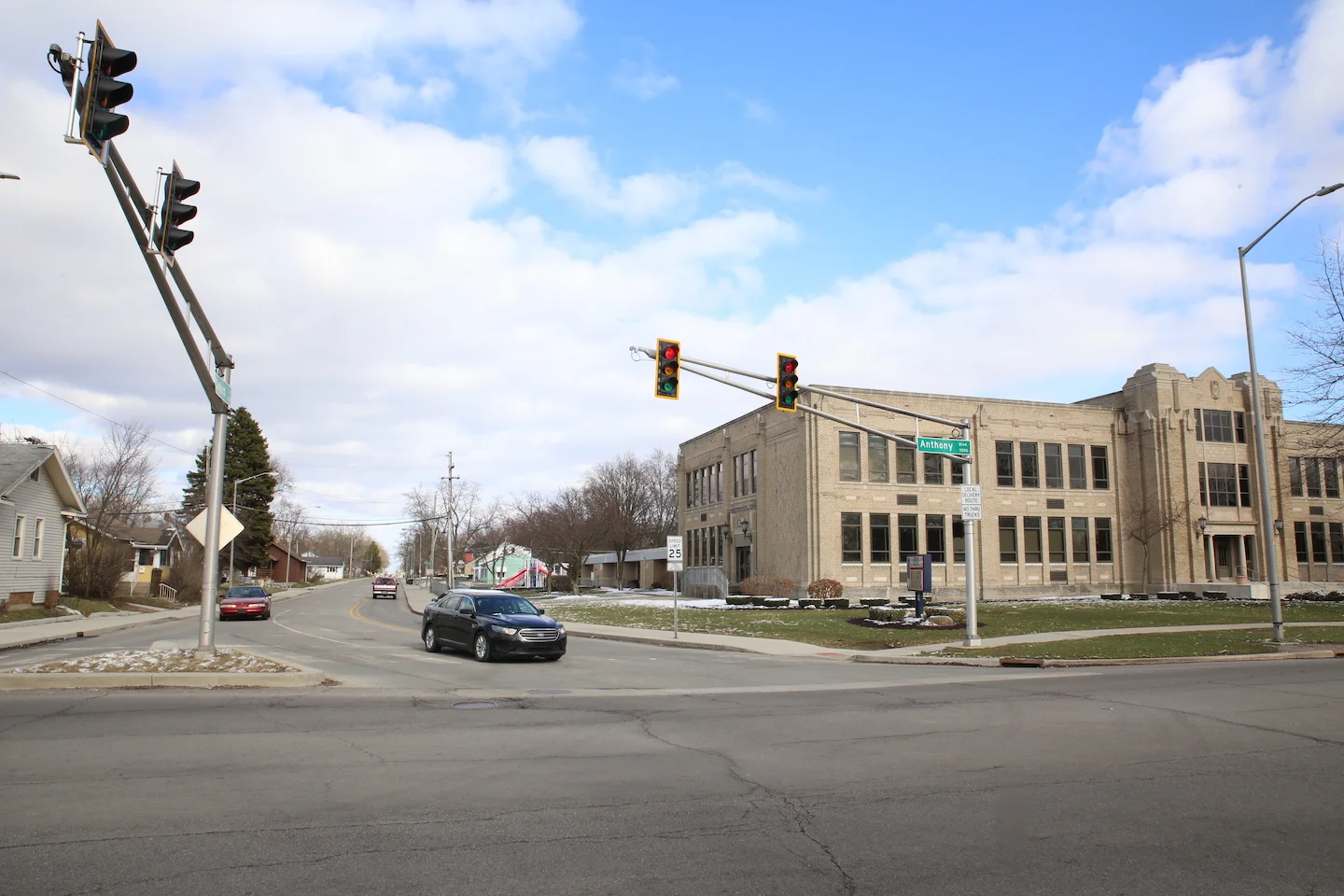The State of Here to There: A Business Retrospective about the Stretch of Oxford St. from South Anthony Blvd. to Warsaw St.

Much has been made and written about the proliferation of gas stations on the Southeast side of Fort Wayne; the conversation touches upon, at some point, the lack of black of businesses (and, even, black-owned gas stations) in those areas. Tyrone Cato, of Tygeron Graphics, has screen-printed in his 1529 Oxford Street storefront for 25 years come September. He recalled the businesses on his block that have come and gone.
Tyrone Cato: [This building, back in the day]…there was a convenience store and a laundry mat. When I moved here, there was a florist [cattycorner from me] that’s now motor cycle club.
The Euell Wilson Center, across the street, predated me by a year. Prior to that, there was a tool and dye company, with a porcelain brick façade on the outside. The muffler shop, Butch’s Exhaust…he was a good dude. He’s since retired and sold the building.
There was an Elks Club was directly across the street, like an American Legion, members only club. I can’t remember what number it was. On the corner, Winter Garden was a bar, that place used to be jumping.
There is a church right next to me. That’s always been a church.
Down the block where the gas station is now at Hanna St., there was an auto repair business. Down the block from there, there was a little gas station [at the corner of Bowser and Oxford]. Across the street, there is a half-and-half…a barber shop and grocery store. At one time there was a recording studio in there. Where the Eden Mart grocery store is now, at Reed and Oxford, there was a post office branch and after that was a union hall.
Where the little, white convenience store is now at Oliver Street, there was like a market, a black-owned business that sold…for a wont of a better word…soul-food stuff. You got pickle-pig lips there. (Laughs.) Of all things.
Of course, you always had the Oxford Association building. I knew the name Mary Morris from being a kid. A very nice lady but was real hardcore as far as the neighborhood. She was on the spot, dealing with issues. She was very vocal.
There used to be a bait store right on the corner of Oxford and Hanna, on the northeast corner.
Brownlee’s has stayed the course. At the Oxford/Hanna corner, there was a hardware store that was owned by an older white couple. That guy ended up getting robbed and beat down and he swore he would never come back. He didn’t want to sell to black folk. At the same corner, there was a general hardware and plumbing store. Then after that, there was a beauty supply place for a short period.
On the whole topic of gas stations/convenience stores…[they’re] profitable, it’s a business decision. They’re not doing anything illegal, my thing has always been, we can protest about it (whatever, whatever), but how come someone black hasn’t opened one? There was a guy, Ed Tharp…he owned a dry-cleaners at the corner of Clinton and Pontiac and owned a gas station. There was another…Paul Beam, the peanut man back in the day. He had a gas station over there where old Decatur Road and Hanna converge. But prior to that, in my lifetime, I don’t know of any black folk who owned a gas station around here. We don’t have a black-owned bank, we don’t have a black-owned savings and loan.
But, back to my point, the gas stations are profitable. They know what we buy. But, apparently, the profit margin on gas is so small…that’s why they have gas stations/convenience stores, their profits are made primarily from lottery, snacks, pop, cigarettes, stuff like that. That’s what we consume. And they know that.
There has kind of been a resurgence of black-owned business, particularly along Oxford Street. We got a million barbershops. There’s nothing wrong with barbershops. If it’s meeting a need, by all means, there’s room for more. There are a lot of black-owned home daycares, which is cool. But there’s a whole another realm of business that, for whatever reason, we have yet to delve into. We have to overcome the way we come at each other and what we expect from each other as people of color.

